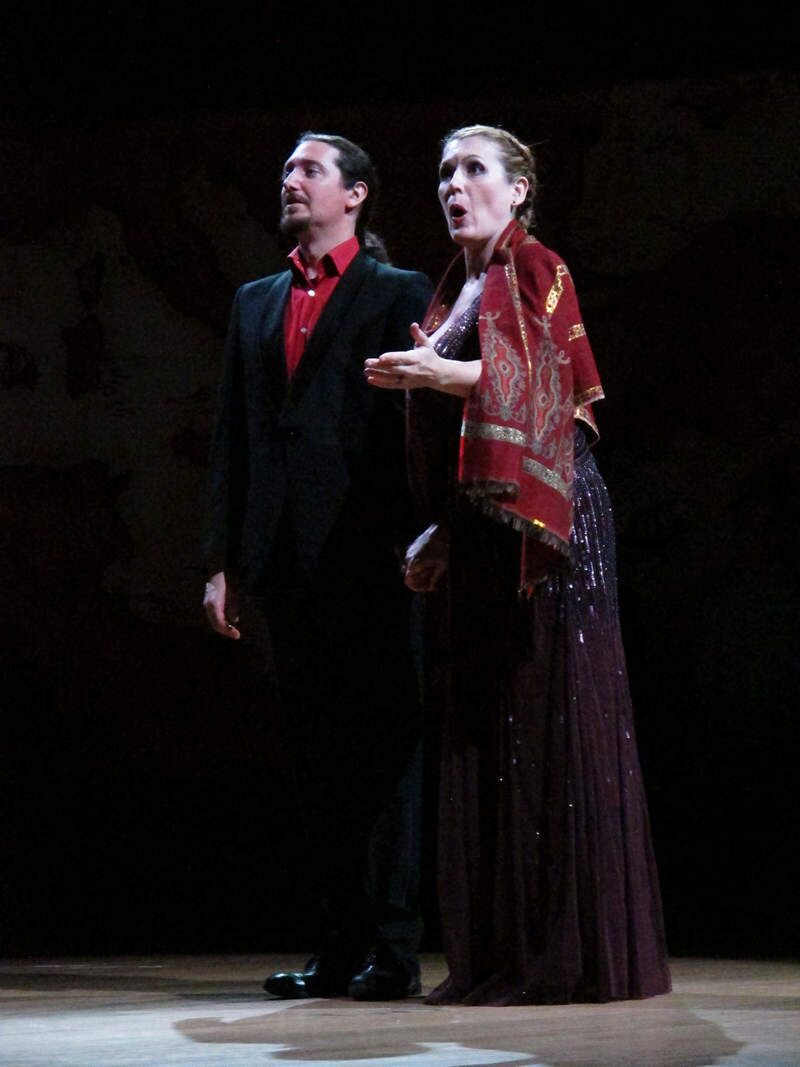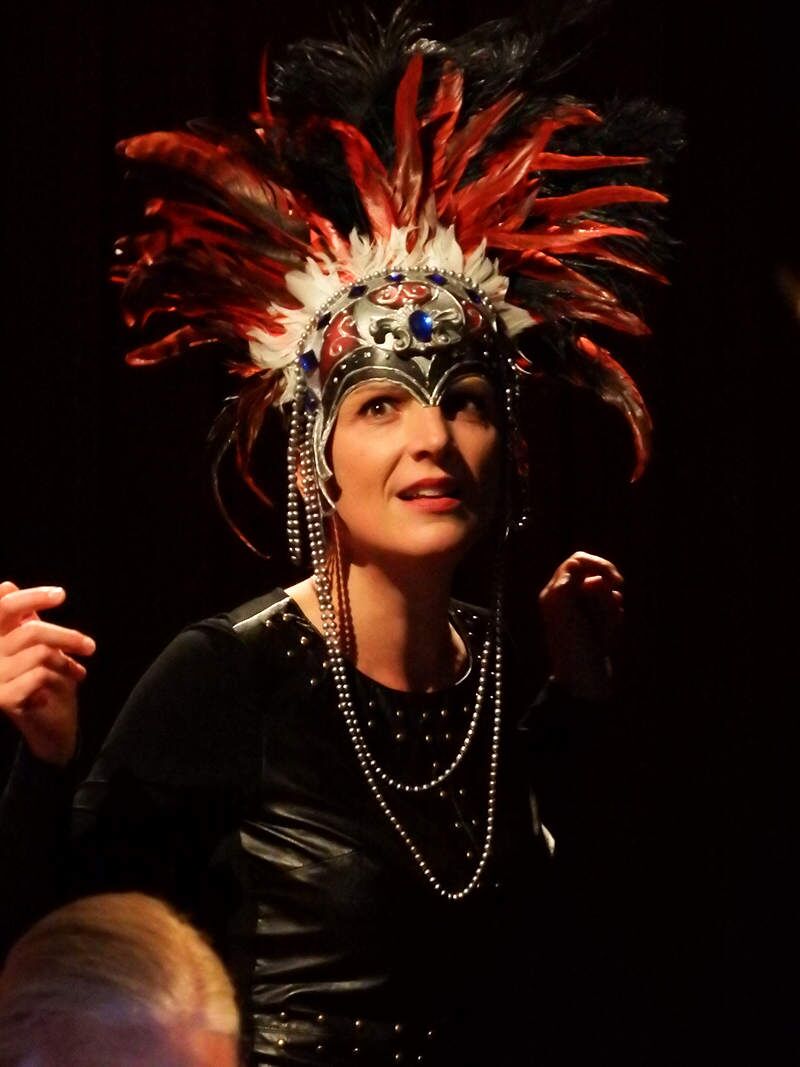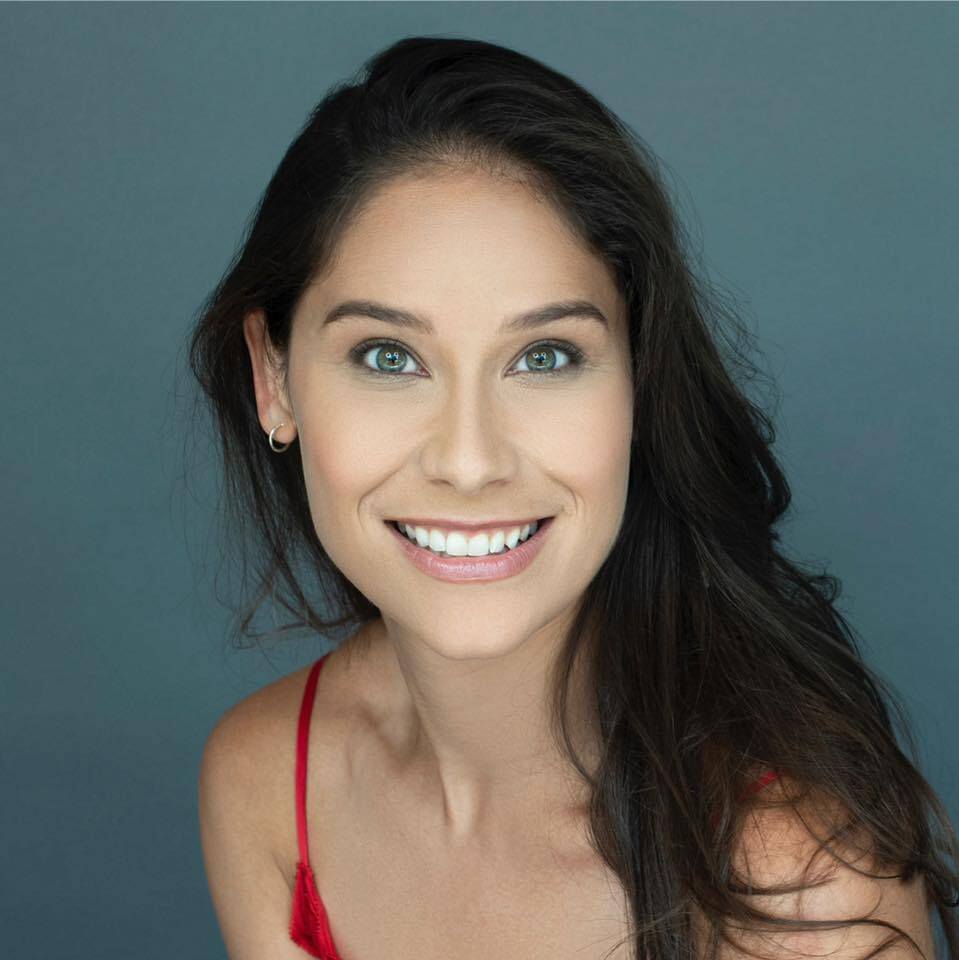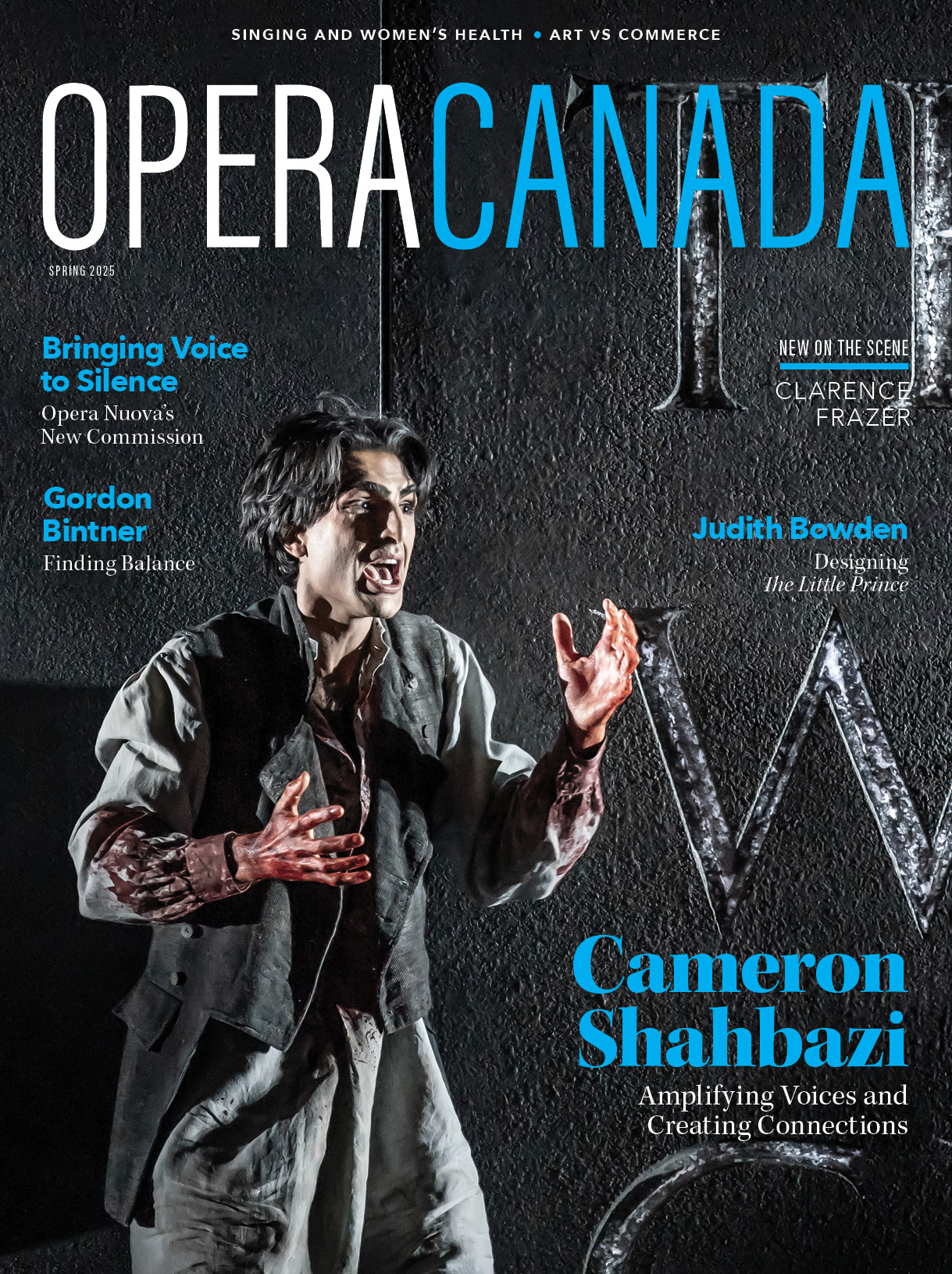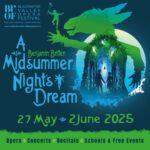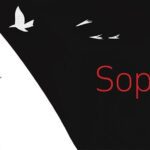To open its 17/18 farewell season on October 21, Toronto Masque Theatre presented a double bill of Henry Purcell’s Dido and Aeneas and Aeneas and Dido, a new work with music by James Rolfe and libretto by André Alexis.
Specializing in the artistic fusion of music, theatre and dance—Toronto Masque Theatre showcases something very intriguing in this compelling, high-calibre production.
Purcell’s timeless Dido and Aeneas is a short piece. Coming in at just under one hour in length, it is common for companies to pair it with another one-act opera. However, I doubt there has ever been as fitting a pairing as Rolfe’s Aeneas and Dido.
A different take on the story
Rolfe’s opera begins just after Dido and Aeneas meet, exploring their blooming passion during the hunt. Falling asleep in each other’s arms, Aeneas in warned in a dream to leave Dido’s side and return to Troy. Compared to Purcell’s piece, not only does Aeneas and Dido give us a flashback, and certainly more work for Aeneas—it also provides greater insight into Dido’s decision to commit suicide.
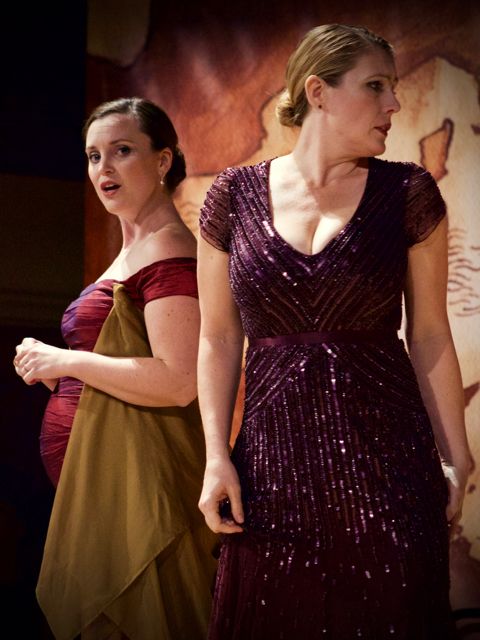
Jacqueline Woodley (Belinda), Krisztina Szabo (Dido) in Toronto Masque Theatre’s Dido and Aeneas Photo: John Askko
Seriously good singing
Krisztina Szabó plays the tortured queen in both works. An exceptional talent, her “When I am laid in earth” (Purcell) was sung fully, with passion. Szabó was generous in her use of ornaments, her booming voice intelligently serving the emotion of the aria. As Dido’s sister Belinda, soprano Jacqueline Woodley was luminous, her bright trills making for a sensational “Thanks to these lonesome vales”. Andrea Ludwig sang the Sorceress, her voice colourful and clear while gleefully spouting some of the libretto’s most gorgeous poetry.
Rolfe opens his opera with the chorus, “The gods award the fateful”, chanted in a lush, angelic a capella. He introduces hints of baroque structure to his contemporary opera. The score contains the expected operatic ebb and flow of recitative and arias, but with the addition of minimalist motifs repeated over a pulsing rhythm in the orchestra. Passages of descending chromaticism make it an excellent match to similar sections in Act I of the baroque opera. Aeneas isn’t given much to do in the Purcell, but with Rolfe’s, the character really gets to shine. The newer score is even better suited to Alexander Dobson’s gravel-toned bass-baritone—the musical climax of his final scene rivals that of Dido’s famous tragic lament.
Director and choreographer Marie-Nathalie Lacoursière’s minimalist staging kept the focus firmly on the performances, while clever lighting heightened the emotional mood of the piece. With a superb grasp of how Purcell should sound, Larry Beckwith shaped the talented eight-member chorus, while conducting and playing in the chamber orchestra. Minus some choppy onsets from the soprano section, the production was practically perfect.
In a pre-show discussion, Beckwith mentioned that prologue text for Dido and Aeneas does exist, however the music has been lost. By pairing Purcell’s masterpiece with Rolfe’s Aeneas and Dido, we get the backstory we’ve been longing for, and the lovers finally get the passionate love duet they’ve deserved for the past 300 years.

